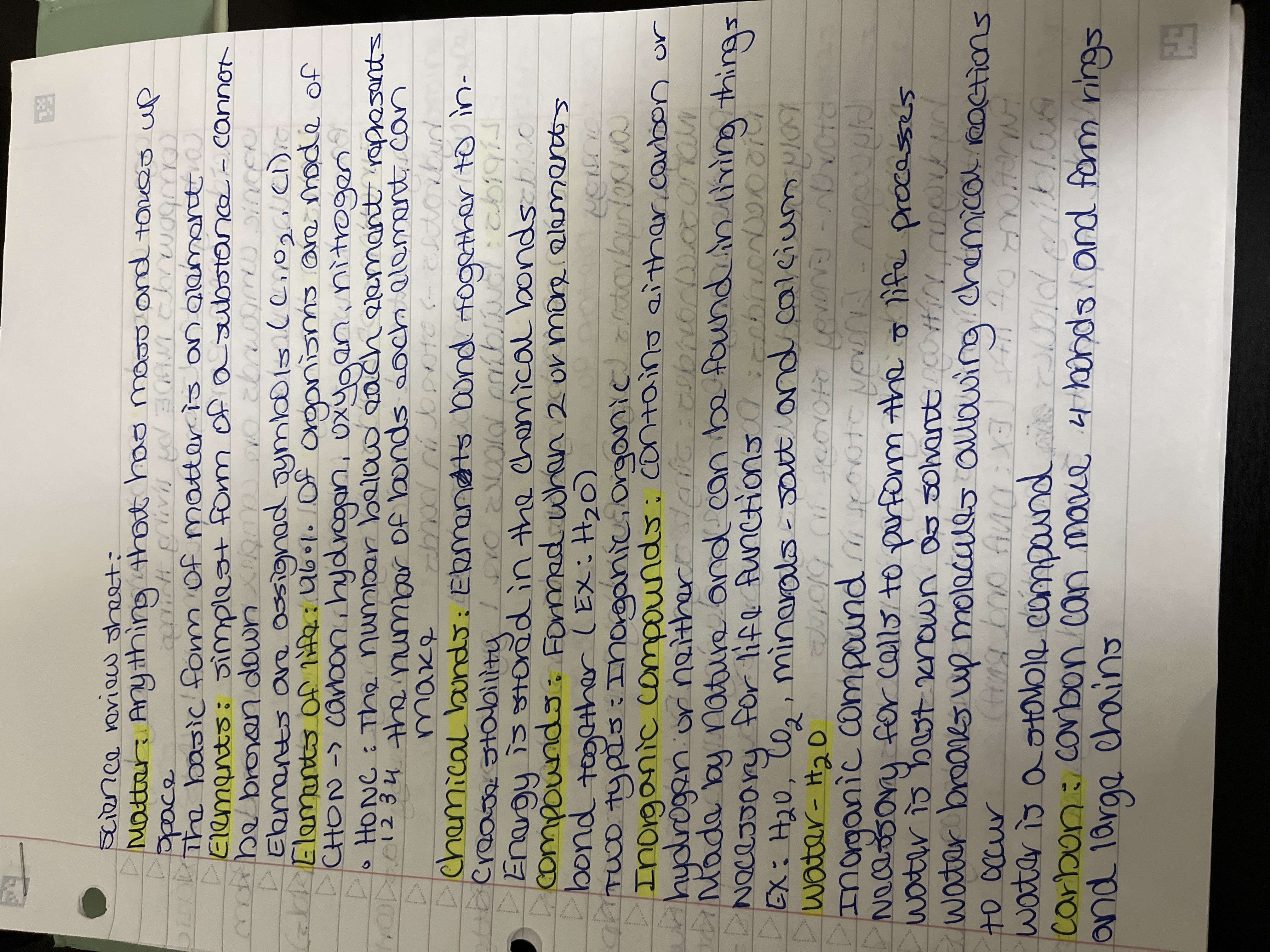Explain the concepts of matter, elements, chemical bonds, and compounds, including different types of compounds and the unique properties of water and carbon.

Understand the Problem
The question appears to be asking for clarification or information related to basic chemistry concepts such as matter, elements, chemical bonds, compounds, and the properties of water and carbon. It outlines definitions and characteristics that seem to be part of a study guide for science. The user may be looking for further explanation or assistance related to these concepts.
Answer
Matter has mass and takes space. Elements form compounds via bonds. Water is a solvent; carbon forms diverse structures.
Matter consists of anything that has mass and takes up space. Elements are the simplest form of a substance, often forming chemical bonds to create compounds (inorganic or organic), crucial for life. Water acts as a solvent, and carbon forms stable bonds, enabling diverse molecular structures.
Answer for screen readers
Matter consists of anything that has mass and takes up space. Elements are the simplest form of a substance, often forming chemical bonds to create compounds (inorganic or organic), crucial for life. Water acts as a solvent, and carbon forms stable bonds, enabling diverse molecular structures.
More Information
Water's polar nature allows it to dissolve substances, playing a critical role in biological processes. Carbon's versatility is due to its four valence electrons, allowing complex molecule formation.
Tips
Confusion may arise when distinguishing between pure elements and compounds. Remember that compounds are formed by chemical bonding of different elements.
Sources
- Matter, Elements, Compounds, Chemical Bonds and Energy - umassd.edu
- Chemical bonds | Chemistry of life | Biology (article) - Khan Academy - khanacademy.org
- 3.1: Types of Chemical Compounds and their Formulas - chem.libretexts.org
AI-generated content may contain errors. Please verify critical information